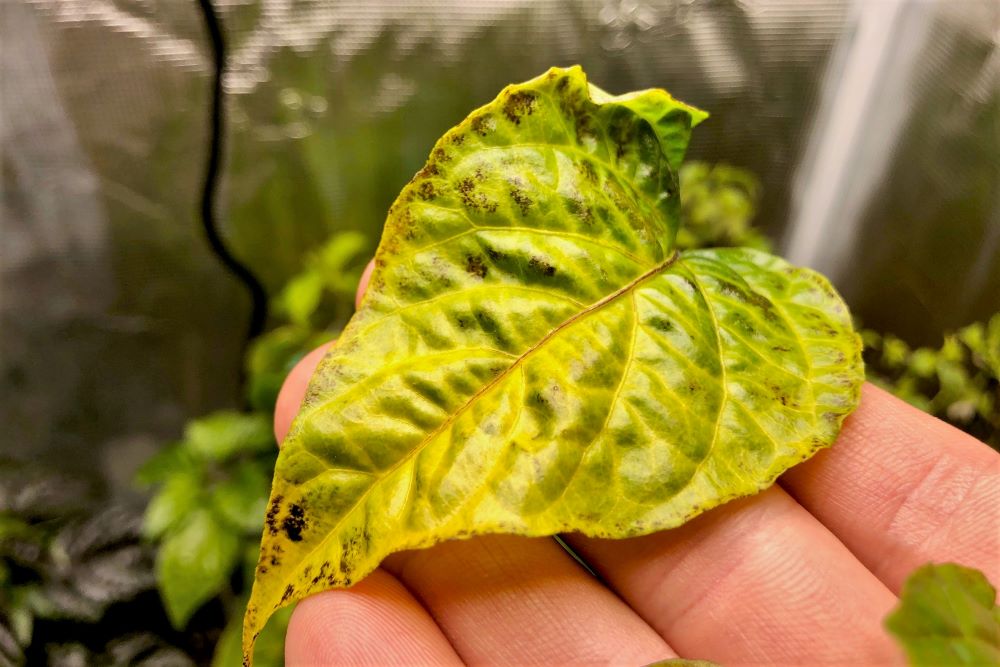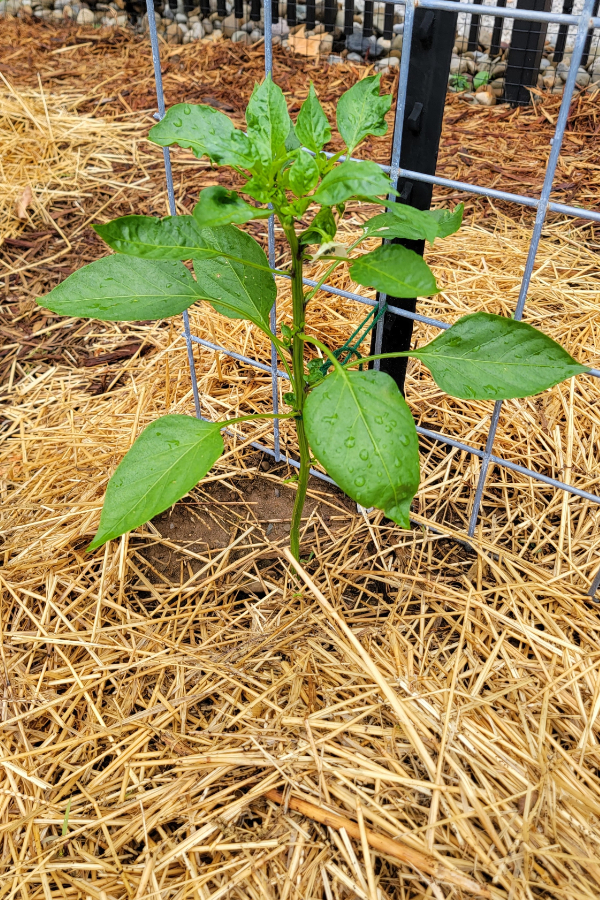Find Out the Best Fertilizers for Peppers: Top Picks for Optimum Growth
Wiki Article
Organic Vs. Synthetic Fertilizers: Which Is Best for Nurturing Healthy Pepper Plants?
In the world of nurturing healthy pepper plants, the selection between natural and synthetic plant foods stands as a pivotal choice with significant ramifications. While both options aim to provide necessary nutrients to sustain plant growth, the nuances of their influence on the soil, plant health, and the setting stimulate an argument that echoes throughout the horticulture neighborhood. Recognizing the unique advantages and potential challenges of each plant food type is critical for pepper farmers seeking to maximize their returns while preserving an eco-conscious and lasting strategy.Advantages of Organic Plant Foods
Organic plant foods use an environmentally-friendly and lasting method to beneficial pepper plants, providing crucial nutrients without making use of synthetic chemicals. These all-natural fertilizers are originated from organic resources such as compost, manure, bone meal, and algae, promoting dirt health and wellness and biodiversity. Unlike artificial fertilizers, natural options launch nutrients slowly, making certain a consistent and balanced supply for pepper plants to flourish.One significant advantage of organic fertilizers is their capability to improve dirt framework and water retention. By improving dirt wellness, organic fertilizers advertise useful microbial task, which helps in nutrient uptake by pepper plants. Additionally, natural plant foods reduce the danger of chemical run-off, shielding water resources from air pollution and securing the setting.
Additionally, organic plant foods contribute to long-term soil fertility by advertising the growth of helpful dirt organisms. These organisms help break down raw material, launching nutrients in a kind that is quickly accessible to pepper plants. best fertilizers for peppers. By fostering a healthy soil environment, natural plant foods sustain lasting pepper growing practices that benefit both plants and the environment
Drawbacks of Synthetic Plant Foods
Synthetic plant foods, in contrast to their natural equivalents, present numerous negative aspects when utilized to nourish pepper plants, impacting both plant wellness and environmental sustainability. One major downside of artificial fertilizers is their propensity to leach nutrients from the dirt swiftly.Additionally, the overuse of synthetic fertilizers can add to water air pollution. Excess plant foods not taken in by plants can get rid of into water bodies, causing eutrophication, where algae blooms diminish oxygen degrees in the water, hurting aquatic life. Moreover, artificial plant foods are usually stemmed from non-renewable sources, such as nonrenewable fuel sources, adding to carbon emissions and environmental deterioration throughout their manufacturing.
Nutrient Absorption Contrast
When comparing natural and synthetic fertilizers in terms of nutrient absorption, natural fertilizers have the advantage of offering a much more well balanced and slow-release resource of nutrients. Organic plant foods have a selection of macro and trace elements that are not just useful for the plants yet likewise promote healthy dirt microbial activity, which assists in nutrient uptake.Furthermore, natural plant foods enhance dirt structure and water retention ability, permitting pepper plants to access nutrients more learn this here now efficiently. This improved dirt quality helps with origin growth, enabling far better nutrient absorption. Artificial plant foods, although at first increasing plant growth because of their high nutrient concentrations, might hinder long-lasting nutrient absorption by degrading soil health and wellness gradually.
Ecological Effect Considerations

On the various other hand, synthetic plant foods, although commonly more focused and promptly available to plants, can have harmful results on the atmosphere otherwise applied effectively (best fertilizers for peppers). Their production calls for high energy inputs, bring about greenhouse gas discharges and adding to climate modification. Furthermore, the overflow of excess artificial plant foods can infect water resources, resulting in eutrophication and harming aquatic communities.
Finest Plant Food Practices for Peppers
When feeding pepper plants, optimizing nutrient uptake and minimizing environmental effect are essential considerations. To achieve this, it is vital to follow best fertilizer methods customized to the certain needs of pepper plants. One vital technique is to execute a dirt examination prior to using any kind of plant foods. This examination can establish the pH degree of the dirt and determine any kind of nutrient deficiencies, guiding you in choosing one of the most appropriate fertilizer formula.One more essential practice is to fertilize pepper plants at the appropriate time. Commonly, peppers gain from obtaining fertilizer at planting and then once again when they start to blossom. Over-fertilizing can bring about nutrition discrepancies and harm the plants, so it is vital to adhere to recommended application wikipedia reference prices.
Additionally, selecting a balanced plant food with an NPK proportion that matches pepper plants' demands is basic. Eventually, combining synthetic and organic plant foods judiciously can aid nurture healthy pepper plants while minimizing environmental influence.
Conclusion

Organic plant foods offer a sustainable and environmentally-friendly strategy to nourishing pepper plants, offering crucial nutrients without the use of synthetic chemicals. Unlike synthetic plant foods, natural alternatives release nutrients slowly, making sure a constant and balanced supply for pepper plants to prosper.
Artificial plant foods, in contrast to their organic counterparts, present numerous negative aspects when used to nourish pepper plants, affecting both plant wellness and ecological sustainability. When contrasting natural and artificial plant foods in terms of nutrient absorption, natural plant foods have the benefit of providing a more balanced and slow-release source of nutrients.In addition, organic plant foods enhance soil framework and water retention capability, enabling pepper plants to access nutrients extra efficiently.
Report this wiki page